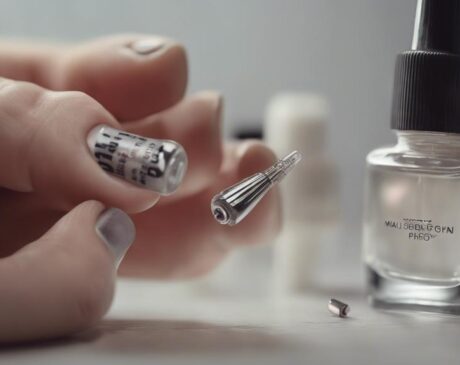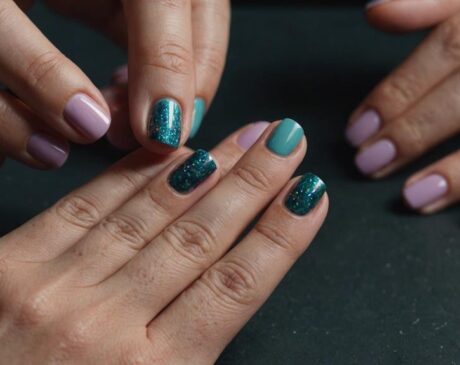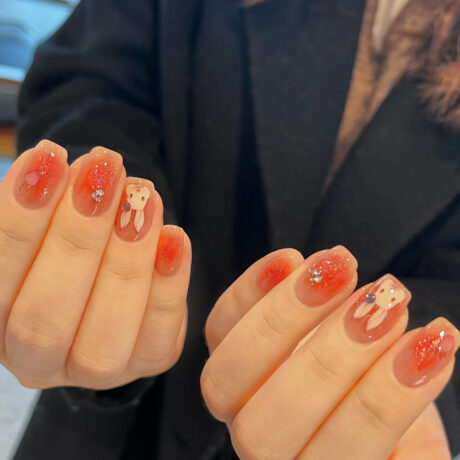What Does Spooning Nails Mean?
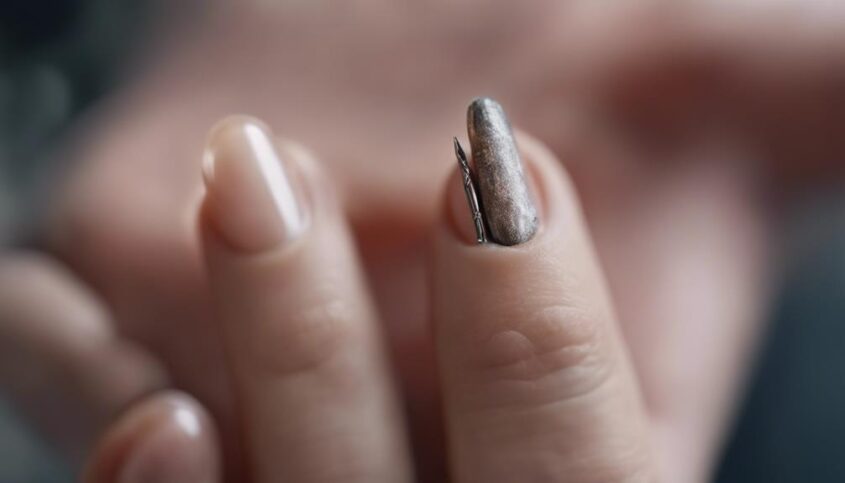
Spooning nails, also known as koilonychia, indicate health issues like iron deficiency anemia or heart disease due to their concave shape. Recognizing this nail abnormality is crucial for early detection and potential treatment. Consulting a healthcare professional for accurate diagnosis and guidance is recommended. Understanding the causes and effects of spooning nails can help in maintaining overall nail health. Treatment options focus on addressing underlying factors like iron deficiency through supplements or dietary adjustments. Prevention strategies and proper nail care play a significant role in promoting healthy nail growth and appearance. Further insights into spooning nails can provide valuable information on managing nail abnormalities.
Key Takeaways
- Spooning nails indicate concave curvature and may signal health issues.
- Health conditions like anemia and heart disease can cause spoon-shaped nails.
- Self-diagnosis is important, but consulting a healthcare professional is crucial.
- Koilonychia, or spooning nails, can result from iron deficiency or trauma.
- Proper nail care and identifying causes are essential for treatment and prevention.
Understanding Spooning Nails
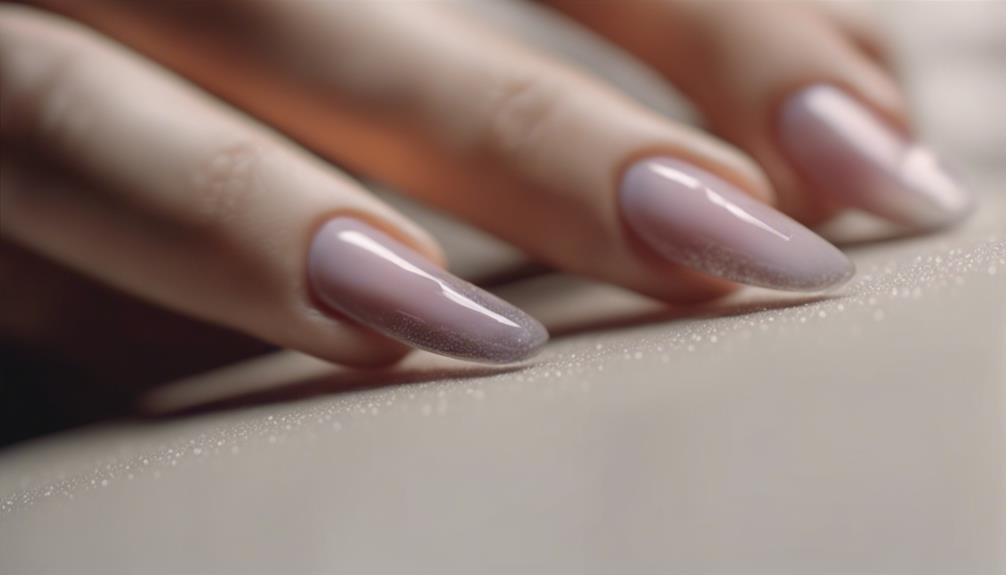
Spoon-shaped nails, also known as spooning nails, are a condition where the nails have a concave shape resembling a spoon, often indicating underlying health issues. While nail abnormalities like spooning nails can be alarming, misconceptions about their causes and implications are common. It is crucial to understand that spooning nails can be a sign of various health conditions, including iron deficiency anemia, hemochromatosis, and heart disease.
When it comes to nail care, self-diagnosis plays a vital role in identifying potential health concerns early on. Regularly examining your nails for any changes in shape, texture, or color is recommended. However, it is essential not to jump to conclusions based solely on nail abnormalities like spooning nails. Consulting a healthcare professional for an accurate diagnosis and appropriate treatment is crucial for addressing the underlying causes of spooning nails.
Causes of Koilonychia
Koilonychia, a nail condition characterized by concave or spoon-shaped nails, can be caused by a variety of underlying health issues. One common cause is iron deficiency, which can lead to thinning and softening of the nails, resulting in the characteristic spoon shape. Iron is essential for maintaining healthy nail structure, and a deficiency can disrupt the normal growth process, leading to koilonychia.
Trauma injury is another significant factor that can contribute to the development of koilonychia. Physical damage to the nail bed or matrix can alter the way nails grow, causing them to become spoon-shaped. This type of injury may result from accidents, repeated pressure on the fingertips, or aggressive manicuring practices.
Understanding these potential causes of koilonychia is crucial for identifying underlying health issues and seeking appropriate treatment. If you notice spoon-shaped nails, especially in conjunction with symptoms like fatigue or weakness, it is essential to consult a healthcare professional for a proper diagnosis and management plan.
Recognizing Spoon-shaped Nails
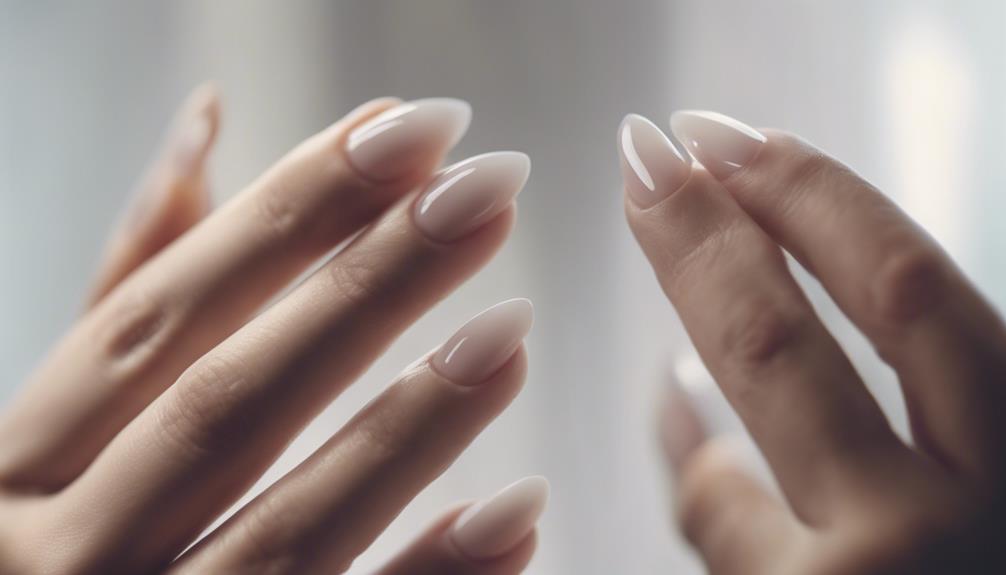
Detecting the distinctive concave curvature of nails can aid in identifying a potential nail condition that may require medical attention. Spoon-shaped nails, also known as koilonychia, are nail abnormalities characterized by nails that are soft and appear scooped out, like a spoon. Recognizing this abnormal nail shape is crucial for an accurate diagnosis and prompt treatment. When observing spoon-shaped nails, it is essential to consult a healthcare professional for further evaluation and management.
To prevent the development of spoon-shaped nails and other nail abnormalities, proper nail care techniques should be followed. This includes keeping nails trimmed, moisturized, and avoiding trauma or injury to the nail bed. Regularly inspecting the nails for any changes in shape, color, or texture can also help in early detection of any abnormalities, allowing for timely intervention.
Effects on Nail Health
Maintaining optimal nail health is essential for overall well-being and can be influenced by various factors, including the presence of spoon-shaped nails. Nail care and hydration play a crucial role in ensuring healthy nails. Hydrated nails are less likely to split or break, promoting overall nail strength and appearance. Additionally, nutritional deficiencies, particularly low iron levels, can contribute to the development of spoon-shaped nails. Iron is vital for healthy nail growth, and a lack of it can lead to brittle and concave nails. Ensuring a balanced diet rich in essential nutrients is key to preventing such nail abnormalities.
| Factors | Effects on Nail Health |
|---|---|
| Nail care | Promotes overall nail strength and appearance |
| Hydration | Reduces the likelihood of nail breakage and splitting |
| Nutritional deficiencies | Can lead to nail abnormalities like spooning |
| Iron levels | Low levels may result in brittle and concave nails |
Treatment Options and Prevention
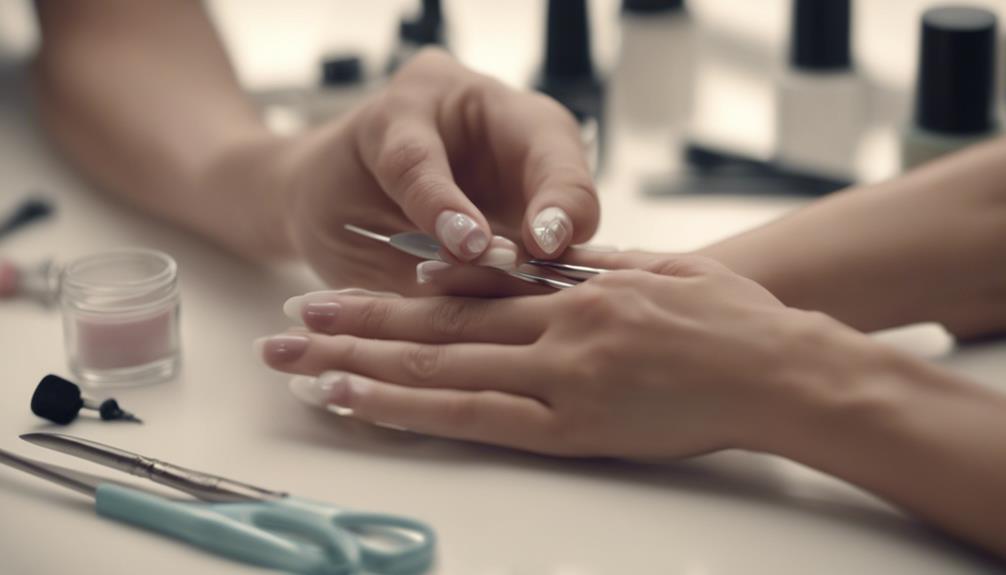
When addressing spoon-shaped nails, exploring effective treatment options and preventive measures is crucial for maintaining optimal nail health. Treatment options for spooning nails often focus on addressing the underlying causes, such as iron deficiency or certain medical conditions.
In cases where anemia is the root cause, iron supplements or dietary changes rich in iron can help improve the condition of the nails. Additionally, topical treatments containing keratin or moisturizing agents can be beneficial in strengthening and hydrating the nails.
Prevention strategies play a key role in managing spoon-shaped nails. Maintaining a balanced diet rich in essential nutrients like iron, zinc, and biotin can promote healthy nail growth and prevent spooning. Avoiding excessive exposure to harsh chemicals and wearing gloves during activities that may damage the nails can also help prevent nail deformities. Regularly moisturizing the nails and cuticles can improve their strength and flexibility, reducing the risk of developing spoon-shaped nails.
Frequently Asked Questions
Can Spooning Nails Be a Sign of a Serious Underlying Health Condition?
Spooning nails, a condition where nails curve excessively, can indicate underlying health concerns. Medical conditions such as iron deficiency anemia or heart disease may be linked. Treatment options involve addressing the root cause. Nail care and prevention tips can support overall health.
Is It Possible for Spooning Nails to Improve on Their Own Without Any Treatment?
Improvement of spooning nails without treatment is rare. However, natural remedies like maintaining a balanced diet rich in iron, practicing good nail hygiene, and protecting nails from trauma can support nail health. Alternative treatments may include topical applications or supplements.
Can Wearing Certain Types of Nail Polish or Acrylic Nails Contribute to the Development of Spoon-Shaped Nails?
Certain types of nail polish or acrylic nails can contribute to the development of spoon-shaped nails. Proper nail care and prevention methods should be followed to minimize the risk. Cosmetic concerns can be addressed with innovative solutions.
Are There Any Specific Vitamins or Supplements That Can Help Improve the Appearance of Spooning Nails?
To enhance nail health and address spooning nails, consider supplementing with biotin, iron, and vitamin E. These vitamins can support nail strength and appearance. Consult a healthcare provider for personalized recommendations tailored to your specific needs.
Can Certain Lifestyle Factors, Such as Diet or Stress, Contribute to the Development of Spoon-Shaped Nails?
Stress management and diet are crucial lifestyle factors that can impact nail health. Maintaining a balanced diet rich in essential nutrients and adopting healthy nail care habits can help prevent issues like spoon-shaped nails, promoting overall nail health and appearance.
Conclusion
In conclusion, spooning nails, also known as koilonychia, can indicate underlying health issues and should not be ignored. Recognizing this condition early on is crucial to prevent further damage to nail health. Treatment options are available to address the underlying causes and prevent the nails from becoming more spoon-shaped.
By taking proactive steps to address this condition, individuals can maintain healthy nails and overall well-being. Ignoring spoon-shaped nails can lead to disastrous consequences for your nail health!

